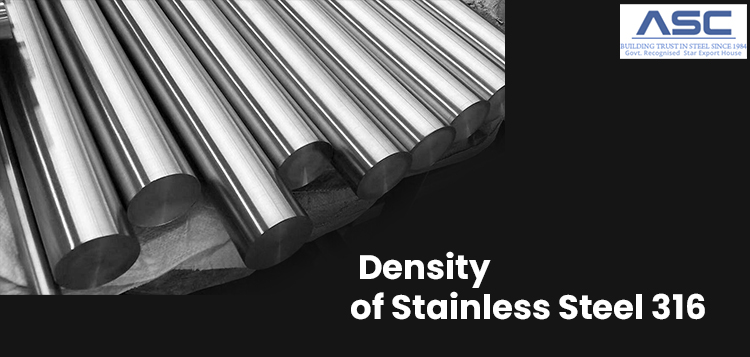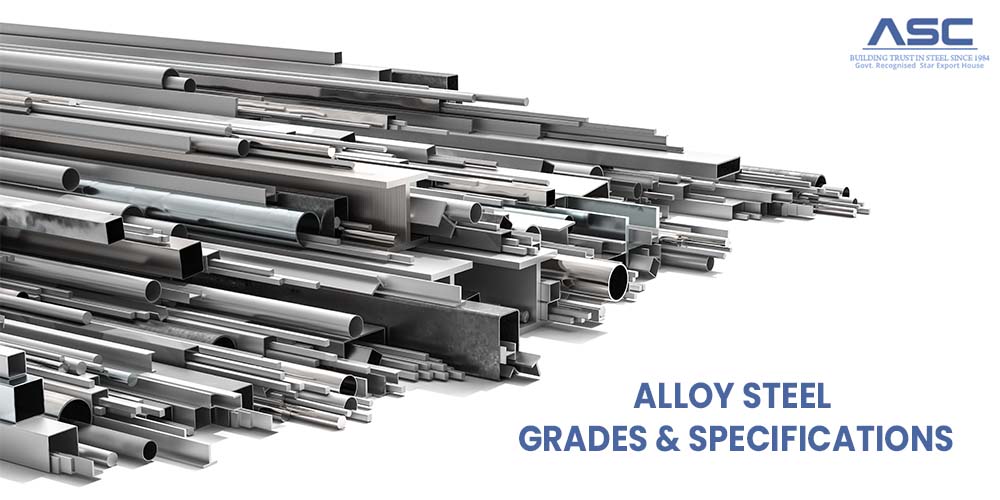Density of Stainless Steel 316
by AMC
Posted on May 15, 2023 at 02:25 AM

What is stainless steel 316
Stainless steel 316 is a type of austenitic stainless steel that contains 16-18% chromium, 10-14% nickel, 2-3%
molybdenum, and small amounts of carbon, manganese, phosphorus, sulfur, silicon, and nitrogen.
This type of stainless steel is highly resistant to corrosion and oxidation, making it ideal for use in a wide
range of applications, including chemical processing, medical devices, marine environments, and food
processing.
Stainless steel 316 is also known for its excellent strength and durability, high temperature resistance, and
easy fabrication. It is often used in construction and architectural applications, such as handrails,
structural supports, and decorative features.
Overall, stainless steel 316 is a versatile and reliable material that is well-suited for a variety of
industrial, commercial, and residential uses.
Density of Stainless Steel 316
The density of 316 stainless steel is approximately 8.0 g/cm³ or 0.289 lb/in³. This value may vary slightly
depending on the specific composition and manufacturing process of the stainless steel.
It is important to note that the density of stainless steel can also be affected by factors such as
temperature, pressure, and mechanical stress. However, at standard room temperature and atmospheric pressure,
the density of 316 stainless steel is generally consistent.
The high density of stainless steel 316 contributes to its strength and durability, as well as its resistance
to corrosion and wear. This makes it a popular material choice for a wide range of industrial, commercial, and
residential applications where strength, durability, and corrosion resistance are important factors.
Stainless Steel - Grade 316 (UNS S31600)
| Property | Minimum Value (S.I.) | Maximum Value (S.I.) | Units (S.I.) | Minimum Value (Imp.) | Maximum Value (Imp.) | Units (Imp.) |
|---|---|---|---|---|---|---|
| Atomic Volume (average) | 0.0069 | 0.0072 | m3/kmol | 421.064 | 439.371 | in3/kmol |
| Density | 7.87 | 8.07 | Mg/m3 | 491.308 | 503.794 | lb/ft3 |
| Energy Content | 91 | 111 | MJ/kg | 9858.82 | 12025.6 | kcal/lb |
| Bulk Modulus | 134 | 152 | GPa | 19.435 | 22.0457 | 106 psi |
| Compressive Strength | 170 | 310 | MPa | 24.6564 | 44.9617 | ksi |
| Ductility | 0.3 | 0.51 | 0.3 | 0.51 | NULL | |
| Elastic Limit | 170 | 310 | MPa | 24.6564 | 44.9617 | ksi |
| Endurance Limit | 256 | 307 | MPa | 37.1296 | 44.5265 | ksi |
| Fracture Toughness | 112 | 278 | MPa.m1/2 | 101.925 | 252.993 | ksi.in1/2 |
| Hardness | 1700 | 2200 | MPa | 246.564 | 319.083 | ksi |
| Loss Coefficient | 0.00095 | 0.00148 | 0.00095 | 0.00148 | NULL | |
| Modulus of Rupture | 170 | 310 | MPa | 24.6564 | 44.9617 | ksi |
| Poisson's Ratio | 0.265 | 0.275 | 0.265 | 0.275 | NULL | |
| Shear Modulus | 74 | 82 | GPa | 10.7328 | 11.8931 | 106 psi |
| Tensile Strength | 480 | 620 | MPa | 69.6181 | 89.9234 | ksi |
| Young's Modulus | 190 | 205 | GPa | 27.5572 | 29.7327 | 106 psi |
| Glass Temperature | K | °F | ||||
| Latent Heat of Fusion | 260 | 285 | kJ/kg | 111.779 | 122.527 | BTU/lb |
| Maximum Service Temperature | 1023 | 1198 | K | 1381.73 | 1696.73 | °F |
| Melting Point | 1648 | 1673 | K | 2506.73 | 2551.73 | °F |
| Minimum Service Temperature | 0 | 0 | K | -459.67 | -459.67 | °F |
| Specific Heat | 490 | 530 | J/kg.K | 0.379191 | 0.410145 | BTU/lb.F |
| Thermal Conductivity | 13 | 17 | W/m.K | 24.3364 | 31.8246 | BTU.ft/h.ft2.F |
| Thermal Expansion | 15 | 18 | 10-6/K | 27 | 32.4 | 10-6/°F |
| Breakdown Potential | MV/m | V/mil | ||||
| Dielectric Constant | NULL | |||||
| Resistivity | 69 | 81 | 10-8 ohm.m | 69 | 81 | 10-8 ohm.m |
Conclusion
In conclusion, stainless steel 316 is a type of austenitic stainless steel that is highly resistant to corrosion and oxidation. It contains 16-18% chromium, 10-14% nickel, and 2-3% molybdenum, along with small amounts of other elements. The density of 316 stainless steel is approximately 8.0 g/cm³ or 0.289 lb/in³, which contributes to its strength, durability, and corrosion resistance. Overall, stainless steel 316 is a versatile and reliable material that is well-suited for a variety of industrial, commercial, and residential uses.
.jpg)
Alloy Steel vs. Stainless Steel
Alloy steel is a type of steel that is made by combining two or more different metals or elements to improve its properties.

